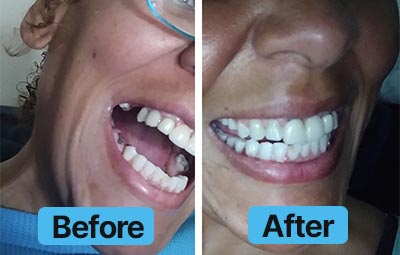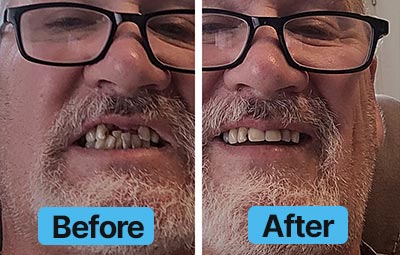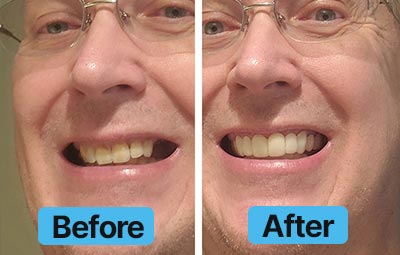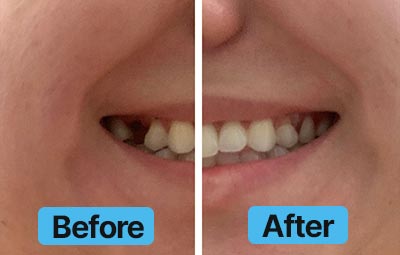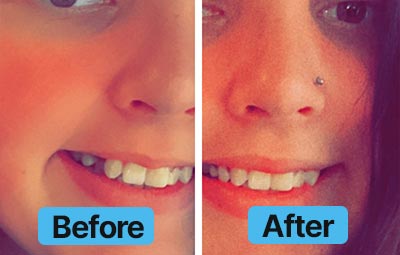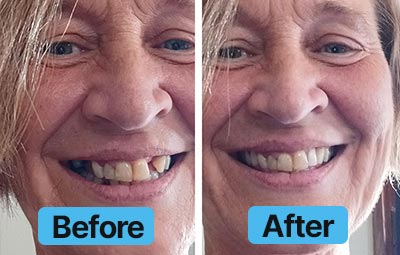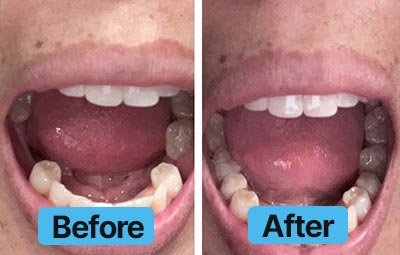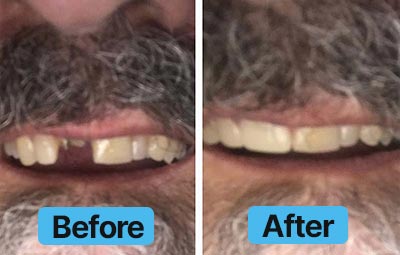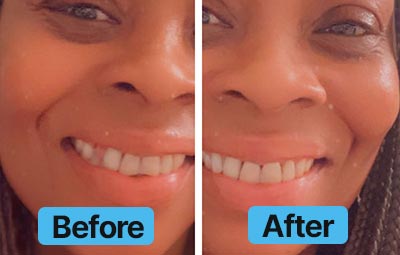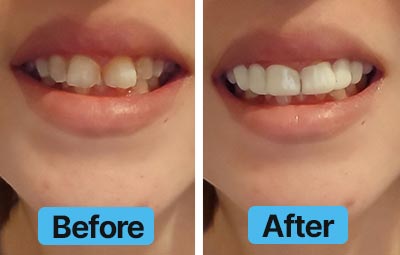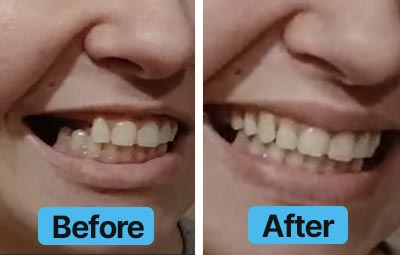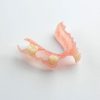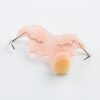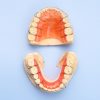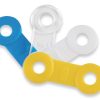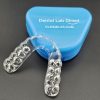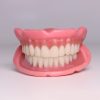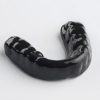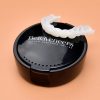Dental veneers offer a convenient and effective solution for enhancing your smile. While they are often used for minor cosmetic improvements, veneers can also help repair long-term dental damage, making them a versatile option for many patients.
There are two primary options for teeth veneers: clip on veneers (also known as snap-on or press-on veneers) and permanent veneers (also called porcelain veneers). Each type has its own advantages and drawbacks, so understanding the differences will help you choose the best option for your needs.
What Are Clip-On Veneers?
Clip-on veneers are non-permanent dental appliances designed to fit over your natural teeth. Similar to a retainer or nightguard, they can be removed at any time. Clip-on veneers are typically made of a durable resin material, offering a temporary but effective solution for improving the appearance of your smile.
The Process of Getting Clip-On Veneers
One of the biggest advantages of clip-on veneers is that they are easy to acquire and do not require invasive dental procedures.
- If working with a dentist, they will take an impression of your teeth and send it to a manufacturer for customization.
- Some online dental services provide at-home impression kits, allowing you to create a mold yourself. After sending it back, your custom veneers will be fabricated and shipped to you within a few weeks.
Common Dental Issues Clip-On Veneers Address
Clip-on veneers are ideal for minor dental concerns, such as:
- Missing Teeth – A veneer can be molded to fill the gap, giving the appearance of a full set of teeth.
- Gaps Between Teeth – Veneers help disguise spaces by covering the gaps and creating a uniform smile.
- Stained or Yellow Teeth – Severe discoloration that does not respond to whitening treatments can be covered with veneers for a brighter appearance.
Pros and Cons of Clip-On Veneers
Pros:
- Affordable – Clip-on veneers are much less expensive than permanent options, with prices ranging from $100 to $600.
- Easy to Use – Since they are removable, there is no need for dental procedures or alterations.
- Instant Results – They provide a fast way to improve the appearance of your smile.
Cons:
- Not a Permanent Solution – Clip-on veneers only provide a temporary fix and must be replaced over time.
- No Structural Benefits – While they cover imperfections, they do not treat underlying dental issues such as cavities or cracks.
- Maintenance Required – They need regular cleaning to prevent staining and wear.
What Are Permanent Veneers?
Permanent veneers are long-lasting dental restorations that are permanently affixed to your teeth. Typically made from porcelain or composite resin, they are custom-crafted to match your teeth in shape and color, offering a seamless and natural appearance.
The Process of Getting Permanent Veneers
Permanent veneers require a dentist visit and involve several steps:
- Consultation – Your dentist will determine the right shade and shape for your veneers.
- Tooth Preparation – The underlying teeth may need to be reshaped so the veneers fit properly.
- Impressions & Fabrication – If porcelain veneers are chosen, an impression is taken and sent to a dental lab for manufacturing.
- Application – Once the veneers are ready, your dentist will bond them securely to your teeth.
Common Dental Issues Permanent Veneers Address
- Cracked or Chipped Teeth – Veneers help protect and restore damaged teeth.
- Irregularly Shaped Teeth – If teeth are uneven or vary in size, veneers create a more uniform appearance.
- Severe Discoloration – Unlike clip-on veneers, permanent veneers are a long-term solution for stained teeth.
Pros and Cons of Permanent Veneers
Pros:
- Durability – Can last between 10 to 15 years with proper care.
- Natural Appearance – Custom-matched to your teeth for a realistic and seamless look.
- Stain-Resistant – Unlike natural enamel, porcelain veneers resist discoloration.
Cons:
- High Cost – Prices range from $925 to $1,500 per tooth, making them a significant investment.
- Irreversible Process – Teeth must be altered before applying veneers, meaning they cannot be removed later.
Which Veneer Option Is Best for You?
Choosing between clip-on veneers and permanent veneers depends on your needs, budget, and desired results.
- If you want an affordable, non-invasive way to improve your smile, clip-on veneers may be the right choice.
- If you’re looking for a long-lasting, natural-looking solution, permanent veneers provide durability and better structural benefits.
Consulting with a dentist can help determine which option aligns best with your oral health and lifestyle.
 60 DAY warranty on all custom-made products | 1,000+ 5 Star ★★★★★ Reviews
60 DAY warranty on all custom-made products | 1,000+ 5 Star ★★★★★ Reviews

